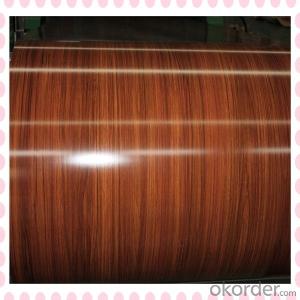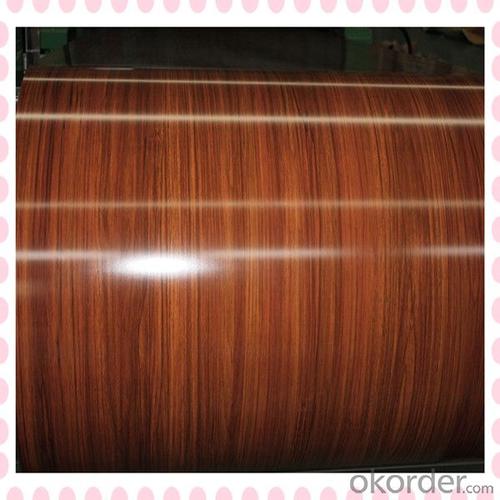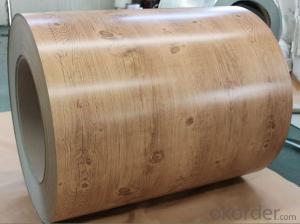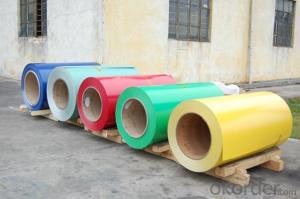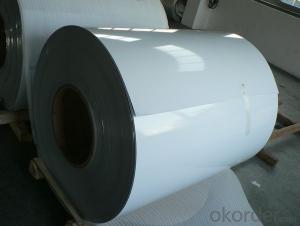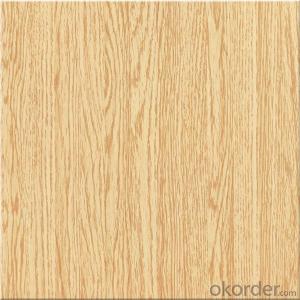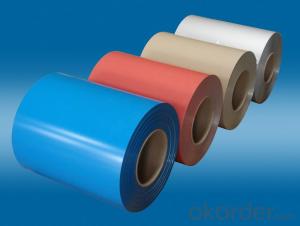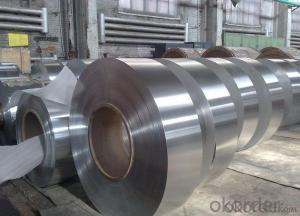Aluminum Coil 8 X 50 - Wooden Surface Coating Aluminum Coil for Interior Wall System
- Loading Port:
- Shanghai
- Payment Terms:
- TT OR LC
- Min Order Qty:
- 5 m.t.
- Supply Capability:
- 10000 m.t./month
OKorder Service Pledge
OKorder Financial Service
You Might Also Like
Specification
1. Specification of Wooden Surface Coating Aluminum Coil for Interior Wall System
characteristics | Application |
1) Super peeling strength | 1) Building exterior curtain walls |
2) Excellent surface flatness and smoothness | 2) Decoration and renovation additions for old buildings |
3) Superior weather, corrosion, pollutant resistance | 3) Decoration of interior walls, ceilings, bathrooms, kitchens and balconies |
4) Even coating, various colors | 4) Shop door decorations |
5) Fireproof, excellent heat and sound insulation | 5) Advertisement board display platforms and signboards |
6) Superior impact resistance | 6) Wallboards and ceilings for tunnels |
7) Lightweight and easy to process | 7) Industrial materials, materials for vehicles and boats |
2. Application of Wooden Surface Coating Aluminum Coil for Interior Wall System
(1).Interior: wall cladding, ceilings, bathrooms, kitchens and balconies, shutters, doors...
(2).Exterior: wall cladding, facades, roofing, canopies, tunnels,column covers , renovations...
(3).Advertisement: display platforms, signboards, fascia, shop fronts...
3. Feature of Wooden Surface Coating Aluminum Coil for Interior Wall System
*Such coil is specially designed to replace aluminum ingot, due to the high export tax of aluminum ingot, the coil has better price than ingot.
*This type of coil can fit customer's remelting furnace just like ingot, no need to make any change to the production line that was previously used for ingot. The standard coil size and weight is very suitable for the feed gate of furnace.
*This type of coil causes less material wastage than ingot when remelted.
*Our coil is made directly from ore, no need to go though the ingot making process, quality is much better than other suppliers who use ingot scrap to make coil.
Be free from Oil Stain, Dent, Inclusion, Scratches, Stain, Oxide Dicoloration, Breaks, Corrosion, Roll Marks, Dirt Streaks and other defect which will interfere with use
4. Certificate:
SGS and ROHS(if client request, paid by client), MTC(plant provided), Certificate of Origin(FORM A, FORM E, CO), Bureau Veritas and SGS (if client request, paid by client), CIQS certificate
5. Image of Wooden Surface Coating Aluminum Coil for Interior Wall System
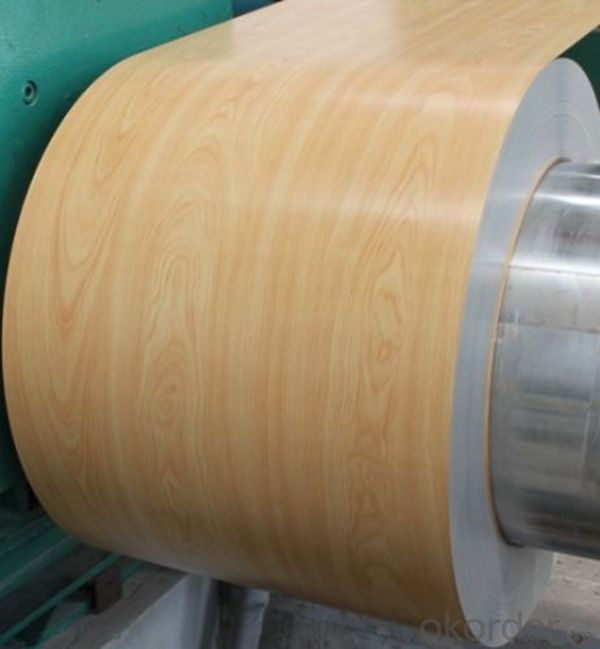
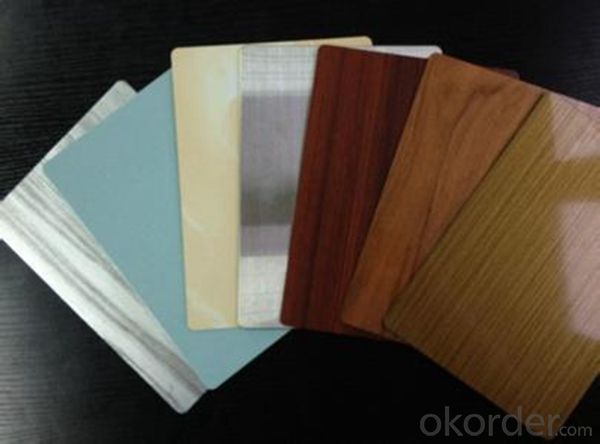
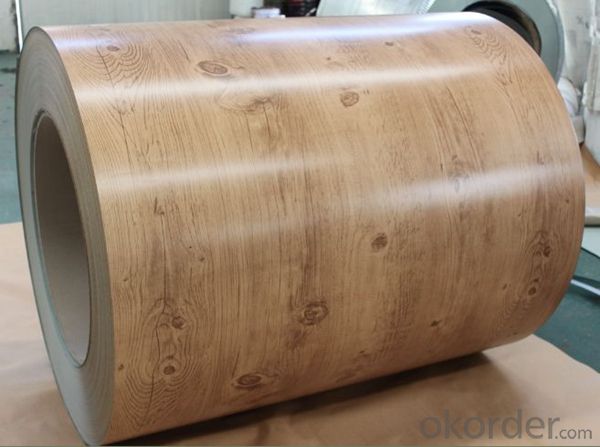
6. Package and shipping of Wooden Surface Coating Aluminum Coil for Interior Wall System
eye to wall
eye to the wall
with wood pallet (wooded case also available)
7. FAQ
1) What is the delivery time?
Dpends on actual order, around 20 to 35 days
2)What is the QC system:
We have QC staff of 20 persons and advanced equipment, each production is with MTC traced from Aluminum ingot lot.
3) What market do you mainly sell to?
Australia, America, Asia, Middle East, Western Europe, Africa etc
- Q: Tossing away an aluminum can wastes as much energy as pouring out half of that can’s volume of gasoline.what does that mean?
- There are two actions going on here. Throwing away a can and pouring out gasoline. Both are examples of wasting energy and the writer was trying to put a visual to the comparison. Since cans come in various sizes, the amount of energy is relative to the size of the can. For example, throwing out a 12 oz can is the same as pouring out 6 oz of gas.
- Q: What are the fire resistance properties of aluminum coils?
- Aluminum coils have excellent fire resistance properties due to the inherent characteristics of aluminum, such as its high melting point and low flammability. Aluminum does not burn, but instead forms a protective oxide layer on its surface when exposed to heat or flames. This oxide layer serves as a barrier, preventing further oxidation and combustion. Additionally, aluminum has a high thermal conductivity, which helps to dissipate heat quickly, further reducing the risk of fire. Overall, aluminum coils are considered to be highly resistant to fire.
- Q: What does 1060 of the 1060 Aluminum rolls stand for?
- Purity can reach more than 99%. Because it does not contain other technical elements, the production process is relatively simple, and the price is relatively cheap. It is the most commonly used series in the conventional industries.
- Q: What are the weight ranges of aluminum coils?
- The weight ranges of aluminum coils vary depending on their size and thickness. Generally, aluminum coils can range anywhere from a few hundred pounds to several thousand pounds. Smaller coils, typically used for household purposes or in manufacturing small parts, can weigh around 100-500 pounds. Medium-sized coils, commonly used in construction or automotive industries, can range from 500-2,000 pounds. Larger coils, which are commonly used in heavy-duty applications such as aerospace or marine industries, can weigh over 2,000 pounds and sometimes exceed 10,000 pounds. It is important to note that these weight ranges are approximate and can vary based on the specific requirements of a particular project or application.
- Q: What are the various applications of aluminum coil in the construction industry?
- <p>Aluminum coil is widely used in construction for various purposes due to its lightweight, durability, and corrosion resistance. It is commonly used in roofing and siding materials for both residential and commercial buildings, providing a long-lasting and low-maintenance option. Aluminum coil is also utilized in the manufacturing of window frames and doors, offering thermal efficiency and strength. Furthermore, it is used in the production of heat exchangers, solar panels, and electrical wiring due to its excellent conductivity. Additionally, aluminum coil is employed in the fabrication of scaffolding and structural components, contributing to the overall stability and safety of construction projects.</p>
- Q: Are aluminum coils suitable for heat exchangers?
- Yes, aluminum coils are suitable for heat exchangers. Aluminum has excellent thermal conductivity, corrosion resistance, and lightweight properties, making it an ideal material for heat transfer applications. Aluminum coils can efficiently transfer heat between fluids in heat exchangers, making them a popular choice in various industries.
- Q: Are aluminum coils fire-resistant?
- Yes, aluminum coils are fire-resistant. Aluminum has a high melting point of 660 degrees Celsius (1220 degrees Fahrenheit) and it does not burn, making it a non-combustible material. This property makes aluminum coils suitable for various applications where fire resistance is a critical factor, such as in building construction, electrical wiring, and HVAC systems. Additionally, aluminum's excellent heat conductivity helps dissipate heat quickly, reducing the risk of fire. However, it is important to note that while aluminum coils themselves are fire-resistant, they may be used in systems that include other components which may not have the same level of fire resistance. It is important to consider the entire system and follow proper fire safety regulations and guidelines to ensure overall fire safety.
- Q: How are aluminum coils processed for specific applications?
- Aluminum coils are tailored for specific applications through a series of processes. The first step involves selecting a high-quality aluminum alloy, which determines the properties of the coil. Once the alloy is chosen, it is melted and cast into large ingots. After cooling, heavy rollers are used to reduce the thickness of the ingots and form long, continuous aluminum coils. Following this, the coils undergo various surface treatments to improve their performance and appearance. One common treatment is cleaning, which eliminates any impurities or contaminants from the coil's surface. This is typically achieved through chemical or mechanical means. Another treatment involves chemically etching the surface to create a specific texture or pattern, which can enhance adhesion or aesthetics. To further enhance the coil's properties, it may undergo processes such as heat treatment or annealing. Heat treatment involves heating the coil to a specific temperature and then rapidly cooling it to modify its mechanical or physical properties. On the other hand, annealing involves heating the coil to a predetermined temperature and slowly cooling it to relieve internal stresses and improve ductility. Coils intended for specific applications may also undergo additional processes. For example, if the coil is destined for use in the automotive industry, it may undergo lubrication or coating processes to reduce friction or enhance corrosion resistance. If it is meant for electrical applications, it might undergo surface treatments to improve conductivity or insulation properties. Finally, the coils are typically cut into desired lengths and packaged for transportation. This can be done using various methods such as slitting, shearing, or sawing, depending on the application and customer requirements. In summary, the processing of aluminum coils for specific applications involves a combination of casting, rolling, surface treatment, heat treatment, and additional processes to enhance their performance, appearance, and suitability for their intended use.
- Q: Are there any limitations on the welding or soldering of aluminum coils?
- Yes, there are limitations on the welding or soldering of aluminum coils. Aluminum is a highly reactive metal with a low melting point, which makes it challenging to weld or solder compared to other metals. One limitation is the formation of oxide layers on the surface of aluminum, which inhibits the formation of strong bonds during welding or soldering. These oxide layers need to be removed before the process, typically by using chemical cleaning agents or mechanical methods, such as abrasive cleaning. Another limitation is the high thermal conductivity of aluminum, which causes rapid heat dissipation. This can make it difficult to achieve and maintain the required temperature for welding or soldering. Specialized equipment and techniques, such as using high-frequency welding or preheating the aluminum, may be necessary to overcome this limitation. Additionally, aluminum has a tendency to deform or warp easily when exposed to high temperatures. This can lead to distortion or changes in the shape of the coils during the welding or soldering process. Proper clamping or fixturing techniques are often required to minimize distortion and maintain the desired shape of the coils. Furthermore, the use of filler materials in welding or soldering aluminum coils can also be challenging. Aluminum has a relatively high thermal expansion coefficient, meaning it expands and contracts significantly with changes in temperature. This can result in cracks or weak joints if the filler material does not have a similar thermal expansion coefficient to aluminum. Specialized filler materials, such as aluminum-silicon alloys, are often used to address this limitation. Overall, while welding or soldering aluminum coils is possible, it requires specialized knowledge, techniques, and equipment to overcome the limitations associated with the material's reactivity, heat dissipation, deformation, and filler material selection.
Send your message to us
Aluminum Coil 8 X 50 - Wooden Surface Coating Aluminum Coil for Interior Wall System
- Loading Port:
- Shanghai
- Payment Terms:
- TT OR LC
- Min Order Qty:
- 5 m.t.
- Supply Capability:
- 10000 m.t./month
OKorder Service Pledge
OKorder Financial Service
Similar products
Hot products
Hot Searches
Related keywords
